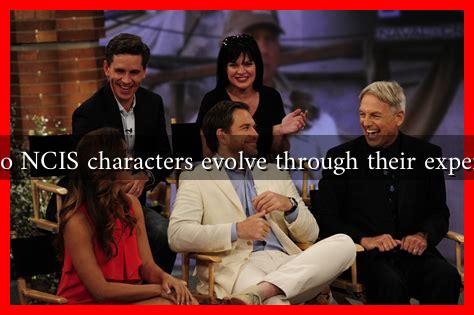-
Table of Contents
How Do NCIS Characters Evolve Through Their Experiences?
The television series NCIS (Naval Criminal Investigative Service) has captivated audiences since its debut in 2003. The show not only entertains but also provides a deep exploration of its characters, showcasing their evolution through various experiences. This article delves into how the characters of NCIS grow and change, influenced by their personal and professional challenges.
The Impact of Trauma on Character Development
One of the most significant factors influencing character evolution in NCIS is trauma. Many characters face life-threatening situations, loss, and moral dilemmas that shape their personalities and decision-making processes. For instance:
- Agent Leroy Jethro Gibbs: Gibbs, portrayed by Mark Harmon, is a character marked by personal loss, particularly the death of his first wife and daughter.
. This trauma has made him a more complex character, often exhibiting a tough exterior while grappling with deep emotional scars.
- Agent Timothy McGee: Initially portrayed as the inexperienced rookie, McGee evolves into a confident and skilled agent. His experiences, including facing life-threatening situations and dealing with the loss of colleagues, contribute to his growth and resilience.
Trauma not only affects individual characters but also influences their relationships with one another. The shared experiences of loss and danger create bonds that deepen their connections, making their interactions more meaningful.
Professional Challenges and Ethical Dilemmas
NCIS characters frequently encounter ethical dilemmas that challenge their values and beliefs. These situations force them to confront their principles and often lead to significant character development. For example:
- Agent Ziva David: Ziva, played by Cote de Pablo, grapples with her past as a Mossad officer and the moral implications of her actions. Her journey from a cold, calculating operative to a more empathetic team member illustrates how professional challenges can lead to personal growth.
- Dr. Donald “Ducky” Mallard: Ducky, the team’s medical examiner, often faces ethical questions regarding his work. His experiences in the field and interactions with victims’ families deepen his understanding of life and death, making him a more compassionate character.
These ethical dilemmas not only serve to develop individual characters but also reflect broader societal issues, prompting viewers to consider their own values and beliefs.
Relationships and Team Dynamics
The relationships among NCIS team members play a crucial role in character evolution. The dynamics within the team often mirror real-life interactions, showcasing how collaboration and conflict can lead to personal growth. Key examples include:
- Gibbs and his team: Gibbs serves as a mentor to his team, guiding them through challenges while also learning from them. His leadership style evolves as he adapts to the strengths and weaknesses of his team members.
- McGee and Abby Sciuto: The friendship between McGee and Abby highlights the importance of support systems in personal development. Their bond helps McGee navigate his insecurities and grow into a more confident agent.
These relationships not only enhance character development but also provide viewers with relatable scenarios that emphasize the importance of teamwork and support in overcoming challenges.
Conclusion: The Journey of Evolution
The characters of NCIS are not static; they evolve through their experiences, shaped by trauma, ethical dilemmas, and interpersonal relationships. This evolution is a testament to the show’s depth and its ability to resonate with audiences. As viewers, we witness the characters’ journeys, reflecting our own struggles and growth. The evolution of NCIS characters serves as a reminder that personal development is a continuous journey influenced by our experiences and the people we encounter along the way.
For more insights into character development in television, you can explore resources like The Atlantic.





